Related Research Articles
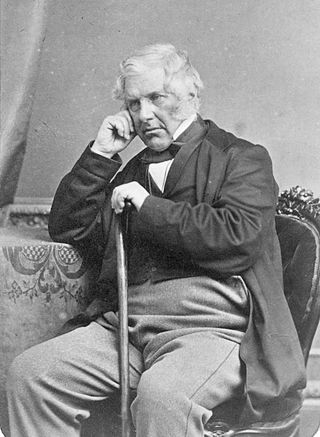
Henry Sewell was a prominent 19th-century New Zealand politician. He was a notable campaigner for New Zealand self-government, and is generally regarded as having been the country's first premier, having led the Sewell Ministry in 1856. He later served as Colonial Treasurer (1856–1859), as Attorney-General (1861–1862), and twice as Minister of Justice.
Dingley Askham Brittin (1823–1881) was an English solicitor. He spent three years in New Zealand as a runholder and during that time, he represented the Christchurch Country electorate in the New Zealand House of Representatives for one term.
Akaroa was a New Zealand electorate. It was located in Banks Peninsula, Canterbury, and named after the town of the same name. One of the original 24 electorates, it existed from 1853 to 1893.
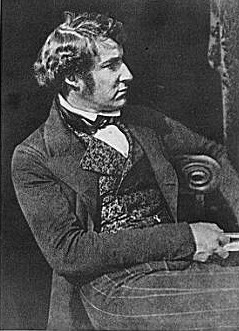
James Archibald Stuart-Wortley, PC, QC was a British Conservative Party politician and the husband of the philanthropist Jane Stuart-Wortley.
Lyttelton is a former New Zealand parliamentary electorate. It existed from 1853 to 1890, and again from 1893 to 1996, when it was replaced by the Banks Peninsula electorate.
Christchurch Country was a parliamentary electorate in the Canterbury region of New Zealand from 1853 to 1860. It was thus one of the original 24 electorates used for the 1st New Zealand Parliament.
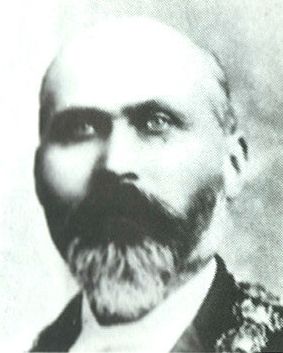
Samuel Manning was a brewer and Mayor of Christchurch in 1890.
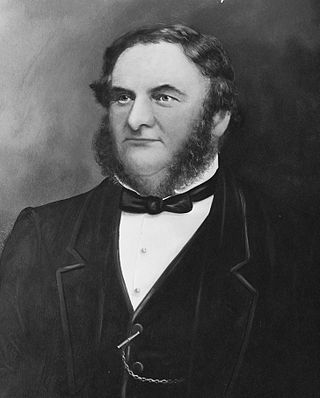
William Barbour Wilson, also known as Cabbage Wilson, was the first Mayor of Christchurch in New Zealand in 1868. A nurseryman by profession, he had large landholdings in Christchurch. His reputation was dented by a fraud conviction, and when he was subsequently elected onto the city council once more, five councillors resigned in protest.
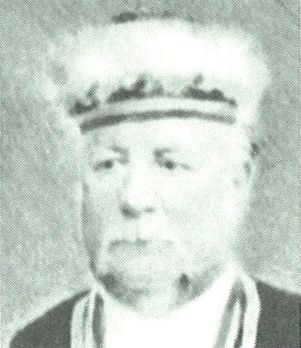
Michael Brannan Hart was the publican of the White Hart Hotel in Christchurch, New Zealand, that stood on the corner of High and Cashel Streets. It was Christchurch's first hotel. Hart, originally from Freshford, Somerset, England, was one of the first settlers of Christchurch. He was a colourful character and stood for elections to the Canterbury Provincial Council and Parliament, but was unsuccessful. He was elected onto Christchurch City Council in 1869, and was chosen as Mayor of Christchurch 1873–1874 by his fellow councillors. He gave the first chain to the Christchurch mayoral chain. He was the first mayor to wear regalia, modelled on the robes of the Lord Mayor of London. He intended to leave the robes to Christchurch City Council, but after a disagreement, he changed his will and the robes were buried with him.

John George Ruddenklau JP was Mayor of Christchurch from December 1881 to December 1883. A baker from Germany, he was later the proprietor of the City Hotel. He was very active with a number of organisations, founded the German Benefit Association, and was the driving force behind the establishment of the German Church.
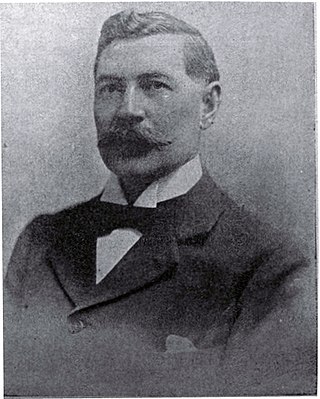
William Reece was a New Zealand businessman and local-body politician. He served as mayor of Christchurch for the years 1900 and 1901.

John Ollivier was a Member of Parliament in New Zealand, but was better known for his membership of the Canterbury Provincial Council. He was the second chairman of the Christchurch Town Council.

The Lyttelton Times was the first newspaper in Canterbury, New Zealand, publishing the first edition in January 1851. It was established by the Canterbury Association as part of its planned settlement of Canterbury and developed into a liberal, at the time sometimes seen as radical, newspaper. A successor paper, The Star, is published as a free bi-weekly newspaper.

Joseph Brittan was a New Zealand surgeon, newspaper editor, and provincial councillor, was one of the dominant figures in early Christchurch. Born into a middle-class family in southern England, he followed his younger brother Guise Brittan to Christchurch, where he and his wife arrived in February 1852 with four children. Joseph Brittan soon got involved in the usual activities of early settlers and gained prominence in doing so. He had bought 100 acres on 10 July 1851 and took up 50 of this to the east of Christchurch that he converted to farmland. There, he built the family residence, and the suburb of Linwood was subsequently named after Brittan's farm and homestead of Linwood House.
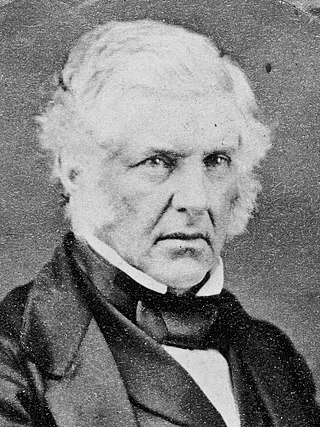
The Town of Christchurch by-election in 1860 was triggered by the resignation of Richard Packer as the Member of the House of Representatives for the Town of Christchurch electorate, and occurred during the term of the 2nd New Zealand Parliament. The previous representative of the electorate, the politician Henry Sewell, had returned after three years in England and the general expectation was that Sewell would be the sole contender for election. The Lyttelton Times wrote several provocative editorials, generally endorsing Sewell for his obvious ability, but criticising him for not publicly talking about his policies and plans. Sewell eventually arranged a public meeting the evening prior to nomination day; this was the only public meeting during the election campaign. After a lengthy address, which was favourably received by the Lyttelton Times, a second contender for the office put his name forward at that meeting: the publican Michael Hart. Sewell, a former premier and one of New Zealand's most senior politicians at the time, was successful against the political novice Hart.

The Christchurch Country by-election 1856 was a by-election held in the multi-member Christchurch Country electorate during the 2nd New Zealand Parliament, on 14 October 1856, and was, along with the Grey and Bell 1856 by-election, the second equal contested by-election in New Zealand political history.
The Town of Christchurch by-election of 1856 was a by-election held in the Town of Christchurch electorate during the 2nd New Zealand Parliament, on 18 November 1856.
The Hutt by-election 1856 was a by-election held in the multi-member Hutt electorate during the 2nd New Zealand Parliament, on 27 November 1856.

George Leslie Lee was a member of the New Zealand Legislative Council from 1862 to 1870. A farmer by trade, he held significant land holdings. He acted as electoral officer in many elections in Canterbury.

The 1865 Town of New Plymouth by-election was a by-election held in the Town of New Plymouth electorate during the 3rd New Zealand Parliament, on 19 May 1865. The by-election was caused by the resignation of the incumbent, Charles Brown, and was won unopposed by Henry Sewell. Whilst Sewell was not a local resident, he was a member of the government through his appointment to the Legislative Council, the upper house of Parliament. Sewell accepted the invitation to represent the electorate, as him becoming a member of the lower house was seen to strengthen the government.
References
- ↑ "Election of a Representative to the General Assembly". Lyttelton Times. Vol. IX, no. 581. 29 May 1858. p. 4. Retrieved 2 May 2013.